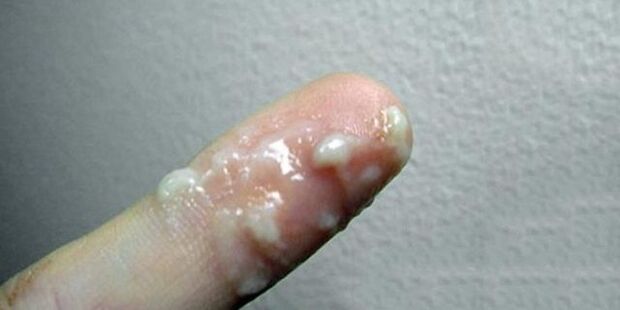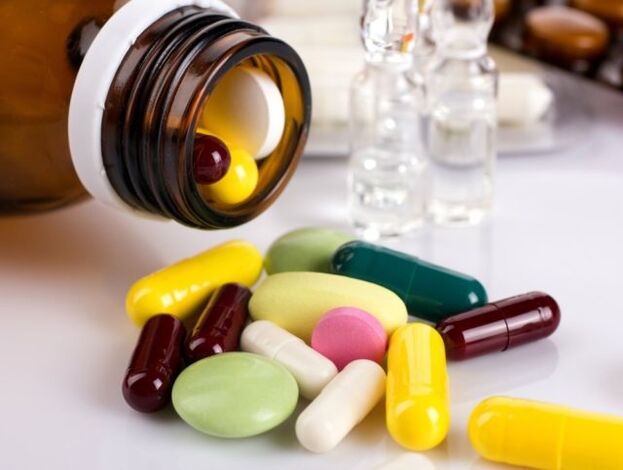As long as the human body, especially the male body, does not fail and does not indicate that it is in poor health with pain anywhere, it seems that this representative of the stronger sex will always be young and healthy, with minor ailments and pain. symptoms will disappear spontaneously. However, according to statistics, the first signs of prostatitis in men seem insignificant, and therefore are not taken into account by men themselves, which ultimately leads to quite serious consequences. What to do in the first manifestations and signals of the development of prostatitis, how to prevent the aggravation of the nature of the disease and prevent undesirable consequences - we will discuss later in this article.
General Information
According to statistics, prostatitis is the most common purely male urological disease, which is an inflammation of such a component of the reproductive system as the prostate gland, located under the bladder. Simply put, the prostate gland is located near the urethra and surrounds it. Inflammation of the prostate stimulates its growth, as a result of which it presses on the urethra, reducing the lumen inside, which does not completely empty the bladder when urinating.
Decades ago, prostatitis was considered a disease of adulthood, as it was observed in the stronger sex after the age of 45, although today the symptoms of prostatitis can be seen even in young (under 30) men.
In the male body, the prostate gland performs the following functions:
- produces a secretion that makes sperm more fluid and helps increase the duration of sperm activity;
- produces prostaglandins and other active substances and hormones;
- ensures sufficient sperm release;
- protects sperm from entering the urine.
The main problem with the development of prostatitis is that with the increase in the volume of the gland itself, an increased amount of urine remains in the bladder after urination and poisons the male body. Therefore, even minor symptoms of inflammation should be ignored so that the disease does not lead to more serious consequences.
Reasons
The results of long-term clinical studies have identified the main causes of the disease and the groups of people most often suffering from prostatitis.
Thus, the risk group includes men:
- to work sitting for a long time, as well as to lead a sedentary lifestyle;
- are overweight;
- having unprotected sex, the result of which can be damaged by sexually transmitted infections;
- suffering from frequent constipation, which causes the spread of microorganisms and bacterial inflammation of the prostate;
- Excessive stress on the groin muscles due to injuries or occupational causes, such as drivers;
- often susceptible to hypothermia, hormonal disorders, as well as those whose sexual life is not regular.
Symptoms of prostatitis in men
It warns of the early stages of development of any serious disease with certain signals. If you do not take them into account and do not seek the advice of a specialist in time, you can lose valuable time that can be used to treat the disease in the first place.
Often the disease persists without certain symptoms, without a proper attention to a chronic form that is difficult to treat.
With certain signals, it warns of the initial stage of development of any serious disease
However, if a person pays attention to the changes that take place in him, he will definitely see the first signs of inflammation in the following manifestations of prostatitis in men:
- The urge to urinate often at night.
- The process of bladder self-emptying is difficult, characterized by low pressure, intermittent or intermittent flow, painful and longer than normal.
- When a man urinates, he feels a burning sensation, after which the bladder feels full.
- Painful sensations during bowel movements.
- Decreased erection quality, fatigue, involuntary erections at night.
- Feeling of chills due to increased body temperature.
- Highlight a specific color.
Symptoms of prostatitis
Prostatitis caused by microorganisms (bacteria) can usually occur in acute and chronic forms, each of which is characterized by the presence of specific symptoms:
- If prostatitis is acute, a significant increase in body temperature is a common phenomenon, the pain spreads not only to the prostate, but also to the groin and even the lumbar region, men have difficulty urinating frequently, decreased libido;
- The chronic course of prostatitis is characterized by characteristic pain in the pelvic and perineal region, blood clots in the sperm and frequent urination at night, accompanied by painful ejaculation, burning and pain.
What are the features of acute and chronic inflammation?
Acute prostatitis is less common than chronic prostatitis. One of the features of the acute form of the disease is the characteristic severe pain that is located in the perineum and intensifies during urination and defecation. In addition, there may be prolonged ejaculation and a decrease in erection. The temperature can rise to 38-39 degrees. In severe cases, severe intoxication of the body is possible with acute urinary retention.
Chronic prostatitis has symptoms similar to other urological diseases, sometimes even asymptomatic. However, it is characterized by mild and rapid pain in the perineum, as well as in the groin and pubic region. The duration and quality of sexual intercourse vary considerably, and there may be a white flaky precipitate in the urine during morning urination. There may be a characteristic discharge after emptying the bladder.
Results
If you do not diagnose a disease such as prostatitis and do not start treatment on time, the consequences can be very sad - the patient suffers from a violation of the normal lifestyle caused by dependence on the toilet, constant unpleasant and painful feelings, intoxication. intoxication with the products of the vital activity of the body in stagnant urine, up to significant disorders of the genitals, to impotence and infertility.

In addition, prostatitis in men reduces sperm quality and, consequently, the likelihood of conception. Pathological processes in the prostate gland can lead to its abscess, kidney failure and inflammation of other organs of the genitourinary system.
Pain syndrome
Regardless of the form of prostatitis, this process is necessarily accompanied by pain syndrome, and the pain often spreads to the scrotum, sacrum, abdomen, back and pelvis. The prostate itself can not cause such severe pain, but the nerve endings of other pelvic organs react sharply to the inflammatory processes localized in it.
Special discharge
With prostatitis, urinary incontinence can be of the following types:
- Milky color, thick consistency discharge - indicates the development of an inflammatory process in the prostate gland.
- Uncontrolled ejaculation of sperm from the urethra - indicates a chronic form of prostatitis or the development of other diseases of the genitourinary system.
- Purulent discharge is seen with slow prostatitis, but with fever is a sign of an acute form of the disease.
- Purulent discharge with a mixture of mucus is observed in the presence of bacterial prostatitis caused by microorganisms, the infection occurs mainly during sexual intercourse.

Treatment of prostatitis
Complete treatment of prostatitis is a fairly long process that requires an integrated approach. First, laboratory tests are performed to determine the nature of the disease, ultrasound examinations, MRIs and tomography are performed, with the help of which they clearly determine the presence of this particular disease, not another with similar symptoms.
After confirming the diagnosis of prostatitis, the urologist prescribes the necessary therapy, including:
- Drugs that improve blood circulation.
- Painkillers.
- Anti-inflammatory drugs.
- If there are signs of intoxication, detoxification solutions and electrolytes are prescribed.
- Additional activities may include diet, exercise therapy, and sedatives.
Surgical treatment is indicated only for prostate abscess or complete blockage of the bladder outlet.

How to treat prostatitis at home
Traditional methods of treating prostatitis include the use of natural remedies, for example:
- Pumpkin seeds.
- Broth and enema of chestnut peel with it.
- Tincture of ripe chestnuts.
- Freshly squeezed juices from carrots, beets, cucumbers, asparagus.
- Elderberry juice (black).
- Prostate massage.
However, it should be remembered that such funds are helpful, the treatment process will be very long and should be supervised by a qualified urologist.
Prevention of prostatitis
Each man can independently carry out preventive measures:
- pay attention to physical activity, rational alternative work, rest and physical activity;
- walk, and the more, the better;
- to follow the rules of healthy eating and lifestyle;
- If even minor symptoms of the disease appear, consult a doctor;
- use contraceptives;
- men who are at risk of not gaining weight, as well as avoiding excessive physical force;
- Follow regular sexual exercise.
Reviews
Forums on different methods of treatment of prostate diseases are full of messages with the same leitmotif:
- the disease affects about 60 percent of men during adolescence (over 40 years of age);
- many of them constantly delay a visit to a specialist who causes the disease, resulting in prostatitis becoming a chronic disease;
- the presence of visible pain signals and characteristic discharge are often perceived as a manifestation of sexually transmitted diseases and they take medication independently and sometimes on the advice of friends, although they know for sure that it is better to consult a specialist;
- almost all have erectile dysfunction, decreased libido, and sexual dysfunction.



















